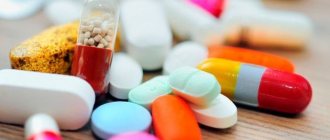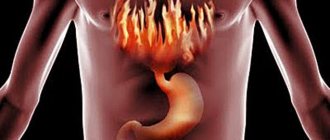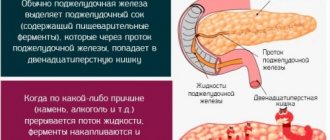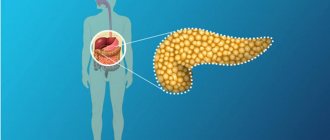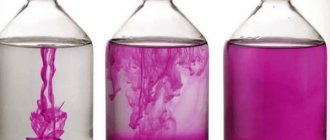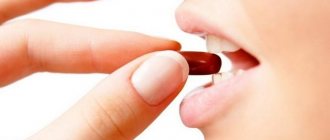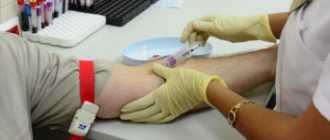- Causes and risk group
- Routes of transmission
- What happens in the body when an infection occurs?
- Symptoms of rotavirus infection in adults
- Possible complications
- Diagnosis of rotavirus
- Treatment of rotavirus infection in adults
- Are additional medications needed?
- Methods for preventing rotavirus infection
Rotavirus infection is a disease of viral origin that affects the mucous membranes of the gastrointestinal tract and causes inflammation. The danger of infection lies in the fact that in the absence of adequate medical care, severe dehydration of the body and the development of complications in all organs and systems are possible. Rotavirus infection in adults is not as severe as in young children, but it also poses a threat to health and life.
Causes and risk group
Rotovirus infection or viral gastroenteritis is a type of intestinal infection, the development of which is provoked by viruses of the Rotavirus genus from the Reovirus family of types A, B and C. In adults, rotavirus infection in most cases is caused by type A virus. There are several risk factors, the presence of which increases the risk get sick, these include:
- unfavorable social and living conditions;
- unbalanced diet, eating low quality foods;
- severe chronic diseases of the gastrointestinal tract;
- immunodeficiency states;
- weak immunity due to constant colds, long-term treatment with antibiotics or chemotherapy drugs.
Routes of transmission
The main route of transmission of rotavirus infection is fecal-oral, that is, through dirty hands. The infection can also enter the body through the use of household items of a sick person or someone who has recently recovered from illness, or through the consumption of raw water or poor-quality food.
The causative agent of rotavirus infection is quite stable in the external environment; for example, in water it can remain viable for up to 2-3 weeks. The virus is highly contagious (infectious) and spreads quickly in confined spaces - this means that if one family member becomes ill, the infection is likely to be transmitted to everyone. As a rule, outbreaks of rotavirus infection occur in the autumn and winter periods, as a result of which it is also called intestinal flu.
Complications of infection
Diarrhea due to rotavirus infection contains mucus and remains of undigested food. But there are no bloody clots or greenery in it. Watery stools persist for the first three days. Then it acquires a thicker consistency and a characteristic gray-yellow tint.
The body is able to produce antibodies itself, provided that the immune system is actively functioning. Otherwise, tablets and gels are prescribed for treatment. If you do nothing, the disease will lead to the following complications:
- hemorrhagic gastroenteritis;
- infectious-toxic kidney;
- renal failure;
- necrotizing enterocolitis.
In rare cases, Gasser syndrome develops. Each complication is accompanied by individual symptoms. Pathologies complicate the treatment of rotavirus infection. Properly selected antiviral and antiemetic drugs help stop the course of the disease.
Having been ill in childhood, an adult acquires antibodies. But immunity is fragile. If the number of antibodies decreases, re-infection is possible. It is characterized by a severe course, intense manifestation of symptoms, and rapid development of complications.
What happens in the body when an infection occurs?
When pathogens enter the gastrointestinal tract, they penetrate the mucous membrane of the small intestine. By multiplying, rotavirus disrupts protein synthesis, the absorption capacity of cells and the evacuation function of digested food. As soon as all the vital resources of the intestinal cell are exhausted, the infected cell dies, releasing a huge amount of toxins that are absorbed into the blood and disrupt the functioning of the gastrointestinal tract. All this is accompanied by the development of severe enzymatic deficiency and signs of gastroenteritis - an inflammatory process of all parts of the digestive tract.
Under the influence of toxic substances, the patient's process of water absorption in the intestines is disrupted, resulting in diarrhea. The accumulation of toxins in the blood provokes repeated vomiting, which significantly increases the risk of developing fluid and electrolyte imbalances and dehydration. If the patient is not provided with adequate medical care and rehydration is not started, then soon, due to diarrhea and vomiting, the volume of circulating fluid in the body decreases, signs of dehydration appear and hypovolemic shock develops.
How does the body react to the penetration of rotavirus infection?
After the virus enters the gastrointestinal tract, it quickly reaches the lining of the small intestine. There, the rotavirus virus begins to multiply rapidly, which leads to disruption of digestive functions. During their life, pathological cells produce toxins that disrupt the absorption of fluid in the intestine. As a result, the patient develops severe diarrhea. The accumulation of toxins causes nausea and vomiting. Repeated diarrhea and vomiting cause dehydration. If therapy is not started at this stage, hypoveemic shock may develop.
Symptoms of rotavirus infection in adults
From the moment the virus enters the body until the first clinical signs of infection appear, 1 to 3 days pass. Rotovirus infection in adults, as a rule, occurs as food poisoning and is characterized by a number of symptoms:
- the appearance of pain in the epigastric region;
- nausea;
- excessive salivation;
- weakness, chills;
- dizziness;
- tachycardia;
- hand tremors;
- repeated vomiting, which brings relief only for a while;
- diarrhea up to 10 times a day;
- cutting pain in the abdomen.
Such signs may persist for 3-7 days. After vomiting and diarrhea stop, the patient will continue to experience weakness, lethargy, and poor appetite for several days (up to a week).
Rotovirus infection is insidious in that after the illness the patient does not develop immunity, that is, if he encounters the pathogen again, infection will occur again.
Diet for rotavirus
For intestinal rotavirus, it is recommended to follow the following dietary principles:
- For the first 2 days you must follow a strict diet. At this stage, the patient's appetite is almost completely absent;
- You need to drink as much clean water and saline solutions as possible. You can drink dried fruit compotes, decoctions and sweet teas;
- after vomiting stops, you can include rice porridge without oil or vegetable soup in your diet;
- food portions should be small. Overeating can trigger a new attack of vomiting;
- After stool normalization, mashed potatoes, lean meat, and jelly are added to the food.
The expansion of the menu should be gradual. Fatty and spicy foods are the latest to be introduced into the diet. Also exclude foods that are difficult to digest. In this case, rotavirus infection in adults can result in serious complications.
During the illness and rehabilitation period, the following are completely excluded from the diet:
- milk and dairy products. Otherwise, you cannot avoid problems with stool;
- fatty meat and fish;
- fresh vegetables and fruits;
- smoked, salted and spicy foods;
- spices;
- confectionery;
- fresh baked goods.
It is best to cook food by steaming or boiling. Failure to follow the diet rules can trigger a relapse. Rotavirus infection will return with renewed vigor.
Traditional methods of treating rotavirus in adults
Traditional medicine can act as a complement to traditional treatment. When choosing a technique, you must consult with your doctor.
Cherry infusion
To prepare the infusion you need to take:
- 1 liter of boiling water;
- 4 tablespoons of dry or fresh cherries.
The berries are poured with boiling water and placed in a thermos for 7 hours. After this, the infusion is filtered and given to a sick person. The daily dosage is 1 glass 4 times a day. You should drink in small sips so as not to provoke vomiting.
Strawberry leaf decoction
A decoction of strawberry leaves helps eliminate diarrhea and vomiting. To prepare the medicine you need to take:
- a tablespoon of chopped dry or fresh strawberry leaves;
- ½ liter of water.
The leaves are filled with water and placed in a water bath. The product is heated for 15 minutes. After this, the infusion is left until it cools completely and then filtered. Give the patient 1 tablespoon 4-5 times a day.
Blackcurrant infusion
The infusion improves immunity and speeds up the healing process. To prepare it you need to take:
- a tablespoon of fresh or frozen currants;
- a glass of boiling water.
The berries and water are mixed and placed in a thermos for a couple of hours. After this, the infusion is filtered and given to the patient. You should drink currant juice in small sips throughout the day.
Bird cherry infusion
To prepare the medicine you need:
- 1 teaspoon of bird cherry fruit;
- a glass of boiling water.
The berries are poured with boiling water and placed in a thermos. Infuse the medicine for 15 minutes. After this, the product is filtered and given to the patient. One glass is divided into three doses. You need to drink in small sips.
When using traditional medicine, caution must be exercised.
Possible complications
The main and life-threatening complication of rotovirus in adults is dehydration, which occurs as a result of the loss of large amounts of water and salts during vomiting and diarrhea and is characterized by the following symptoms:
- dry mouth, increased thirst;
- headache;
- dry skin and mucous membranes;
- reduction, and then complete absence of urination;
- tachycardia, shortness of breath;
- the appearance of acetone odor from the mouth, which is due to the accumulation of ketone bodies;
- drowsiness, weakness, lethargy;
- sunken eyes in severe cases.
Important! If the listed signs of dehydration appear, the patient should be taken to the hospital, where he will be given rehydration therapy with intravenous drips.
Treatment of rotavirus infection in adults
For a favorable outcome of the disease, the patient is prescribed symptomatic treatment, that is, aimed at combating the clinical signs of rotavirus and eliminating its consequences. The standard treatment regimen includes:
- oral rehydration;
- enterosorbents;
- diet.
In severe cases and when signs of dehydration appear, the patient is given IV drips, which help replenish fluid in the body and restore the balance of mineral salts in the blood.
Oral rehydration therapy
Since rotavirus infection is accompanied by profuse diarrhea and vomiting, in order to avoid complications such as dehydration and in order to replenish the volume of lost fluid, the patient should immediately begin taking oral rehydration solutions. They can be purchased at the pharmacy and prepared according to the instructions. The optimal content of electrolytes and microelements in the following products:
- Regidron;
- Humana electrolyte;
- Trihydron;
- Hydrovit.
You can also prepare a saline solution for oral use yourself: to do this, you need to take a liter of boiled cooled water, 6 teaspoons of sugar, half a teaspoon of salt and a pinch of baking soda. Mix everything thoroughly and drink a small sip every 5 minutes.
Important! To avoid a repeated attack of vomiting, it is not recommended to drink a lot of liquid at once - it is best to take a saline solution in small sips at regular intervals.
Oral rehydration for an adult with rotavirus infection is continued until there is a stable improvement in the condition - cessation of vomiting and diarrhea.
If the patient vomits even after a small sip of the solution and it is impossible to replenish the volume of lost fluid through the mouth, then they must be connected to a system through which solutions of sodium chloride, glucose and vitamins will be infused directly into a vein, drop by drop.
Enterosorbents for rotavirus infection
To reduce the amount of toxic substances in the body and remove them from the intestines as quickly as possible during rotavirus infection, the patient is prescribed enterosorbents:
- Enterosgel;
- Polysorb;
- Phosphalugel;
- Smecta.
These drugs bind toxic substances in the intestines, prevent their further absorption into the blood and remove them from the body with feces.
Taking enterosorbents
Enterosorbents are necessary to reduce the level of toxic substances in the body. They also help remove toxins from the intestines. Among the enterosorbents there are:
- Polysorb;
- Smecta;
- Phosphalugel, etc.
These drugs bind toxins, preventing their further absorption into the intestines. As a result, the patient's well-being quickly improves.
Taking additional medications to treat rotavirus in adults
Intestinal infections are caused by viruses. However, antiviral therapy is not prescribed against rotavirus. Taking medications from this group is ineffective. The main principles of rotavirus treatment are normalization of the drinking regime and strict adherence to the diet. A strong body copes with the virus on its own.
Are additional medications needed?
Despite the fact that the infection is caused by a virus, the use of antiviral drugs, which are used to treat colds, is impractical and ineffective. The use of drugs from this group does not in any way affect the duration of the infection or the outcome of the disease. The main principles of rotavirus treatment are drinking regimen, sorbents and diet, and the body can handle the rest on its own.
Dietary nutrition for rotavirus infection in adults
For the first 2 days from the onset of the development of rapid clinical symptoms of rotavirus, the patient cannot eat anything, but, as a rule, he already has no appetite due to constant nausea and vomiting. Particular attention is paid to the drinking regime - saline solutions, compote of dried fruits, apples, uzvar, raisin decoction, sweet tea.
On the 3rd day, when vomiting and diarrhea stop, the patient can prepare boiled rice porridge without oil in water or vegetable soup with rice cereal. Portions should be small, it is better to eat often and very little, so as not to provoke vomiting again. As soon as the stool improves, the diet is gradually expanded, adding mashed potatoes in water without oil, boiled grated vegetables, fruit puree, biscuits, poultry meat without skin and fat. Jelly and berry decoctions, white bread crackers, bagels, and sweet crackers with raisins are allowed.
Exclude from the diet:
- milk and all dairy products (sour cream, cottage cheese, kefir, fermented baked milk, cream, cheese and others) - this rule should be followed for at least 1 month after rotavirus infection;
- pork, fatty meat, offal;
- fatty fish (mackerel, herring, salmon) and caviar;
- fresh vegetables and fruits;
- smoked meats;
- sausages;
- pasta;
- spices, vinegar;
- bakery products and pastries;
- candies, shortbread cookies, sweets.
All dishes are served to the patient boiled, stewed or baked without crust. This table should be followed for at least 1 month in order to minimize the load on the inflamed intestines.
If a strict diet is not followed or ignored, the patient develops enzymatic deficiency, and the symptoms of rotavirus resume - diarrhea, vomiting, total inflammation of the gastrointestinal tract.


